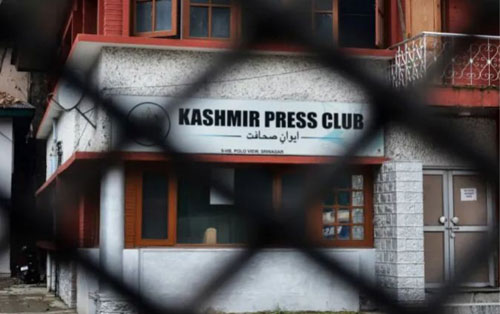Journalists in Indian illegally occupied Jammu and Kashmir are facing an atmosphere of intimidation that is driving them out of the profession and keeping the rest from freely reporting what’s happening in the territory to the world, so writes NBC News, the news division of the American broadcast television network NBC in its latest report.
The NBC News report said that a harsh crackdown began after 2019, when India’s Hindu nationalist government revoked the limited autonomy that Kashmir had enjoyed for 70 years.
It quotes a photojournalist, Muneeb-ul-Islam, as having said, “You cannot think of doing journalism here, it appears all criminalized now”. Islam, 31 now runs a tailor shop in a village about 40 miles south of Kashmir’s capital, Srinagar.
When they changed Kashmir’s status, Indian officials argued it could bring an end to the uprising. But the highly militarized region of 12.5 million people has continued to experience waves of violence, the report added.
The NBC referred to Human Rights Watch and said, since 2019 at least 35 journalists in Kashmir have faced “police interrogation, raids, threats, physical assault or criminal cases” in relation to their work.
Among the highest-profile cases is that of Fahad Shah, founder and editor in chief of the weekly magazine Kashmir Walla, who was arrested in February under anti-terror and sedition.
Shah, 32, was released on bail and then rearrested over other reporting several times before being charged in March under the Public Safety Act, which allows detention without trial for up to two years. He was the second Kashmir Walla journalist to be charged under the law after Sajad Gul, 26, who was detained over a social media post.
In April, Kashmiri journalist Aasif Sultan, 35, was also rearrested under the Public Safety Act after a court released him on bail in a 2018 case, saying the government had failed to provide evidence to support its claim that he had harbored militants. Police dossiers accuse the three men of threatening national security under the pretext of journalism.—KMS










